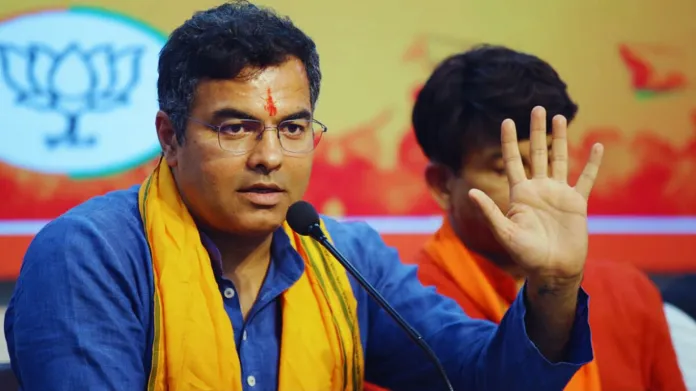TCN News Desk
New Delhi: Parvesh Sahib Singh Verma emerged as the giant slayer following the declaration of the Delhi Assembly election results on February 8. The Bharatiya Janata Party (BJP) leader defeated Aam Aadmi Party (AAP) National Convenor and former Delhi Chief Minister Arvind Kejriwal by 4,089 votes in the New Delhi constituency, which has been represented by two chief ministers — Sheila Dikshit and Kejriwal.
His rise to prominence has been far from conventional. The son of late Sahib Singh Verma, also a former chief minister of the national capital, Parvesh initially made waves in 2009 when he was overlooked by the Bharatiya Janata Party (BJP) for a Lok Sabha ticket. Despite this setback, he gained massive support among the Jat community, who rallied behind him in protest. This show of strength became the first indicator of his growing influence.
Fast forward to 2025. Parvesh is now one of the most talked-about politicians in Delhi politics, with his name being floated as a chief ministerial candidate.
His journey has not been without turbulence, though. His political career has often been defined by clashes with the BJP leadership and controversies surrounding his communal remarks. In 2013, he won the Mehrauli Assembly seat despite opposition from within his own party. His victory was a turning point, and he soon became a force to be reckoned with. After a successful stint as a two-time Lok Sabha MP, Parvesh’s return to the Delhi Assembly has been nothing short of remarkable.
The Legacy of Anti-Muslim Rhetorics
But as his star rises, so does the shadow of his controversial statements, including his inflammatory remarks during the agitation against the controversial Citizenship Amendment Act (CAA).
In October 2022, during an event organised by the Vishwa Hindu Parishad (VHP) in Delhi, Parvesh advocated for a “total boycott of Muslims”. His remarks were made in the context of an alleged murder of a Hindu man by three Muslim men in the Sundar Nagri area.
Videos from the event, which circulated widely on social media, captured Parvesh urging for “sampoorna bahishkar (complete boycott)” and encouraging attendees to commit to refraining from purchasing goods from Muslims or hiring individuals from that community.
BJP President JP Nadda, as reported by The Hindu, had expressed disapproval of Parvesh’s comments and requested the complete footage of his speech. Although an FIR was lodged against the event’s organisers for conducting it ‘without permission’, no legal action was taken against him at that time for inciting hate.
In later clarifications regarding his remarks, he asserted that his comments were directed solely at those implicated in the alleged crime.
In January 2020, Parvesh had controversially stated that anti-CAA demonstrators at Shaheen Bagh could “enter homes and rape sisters and daughters”.
“Kashmir was engulfed in violence years ago when Kashmiri Pandits were expelled and their women were assaulted. That turmoil then spread to UP, Hyderabad, and Kerala. Presently, that unrest has ignited in a corner of Delhi. Thousands gather there. This turmoil could reach the homes of Delhi residents at any moment; the public must consider this. These individuals will invade your homes, abduct your sisters and daughters, and commit heinous acts against them,” he had told news agency ANI.
In an interview with a news channel, he also alleged that “pro-Pakistan and pro-Jinnah slogans are chanted during the Shaheen Bagh protests, and Kejriwal endorses such extremists”.
Two days later, the Election Commission instructed the BJP to disassociate him from the party’s official campaign due to his divisive comments regarding the anti-CAA protests.
CPI(M) leader Brinda Karat, in the meantime, initiated legal actions in multiple courts to address the situation.
His critics argue that his brand of politics thrives on divisive rhetoric, while his supporters laud his unflinching loyalty to the BJP and his ability to challenge established political norms.
His win in the fiercely contested 2025 elections against Kejriwal solidifies his position as a major player in Delhi’s political landscape, but it also raises questions about the future of BJP’s leadership in the capital. While Parvesh’s next steps remain uncertain, his meeting with Union Home Minister Amit Shah and the party’s senior leadership following the election results suggest that he is being seriously considered for a larger role within the BJP.
With the stakes higher than ever, Parvesh’s ascent within the saffron party mirrors the volatile nature of Delhi’s politics. Whether he will be the next chief minister of Delhi or remain a controversial figure in the backdrop, one thing is certain: Parvesh Verma is a name that is impossible to ignore.


